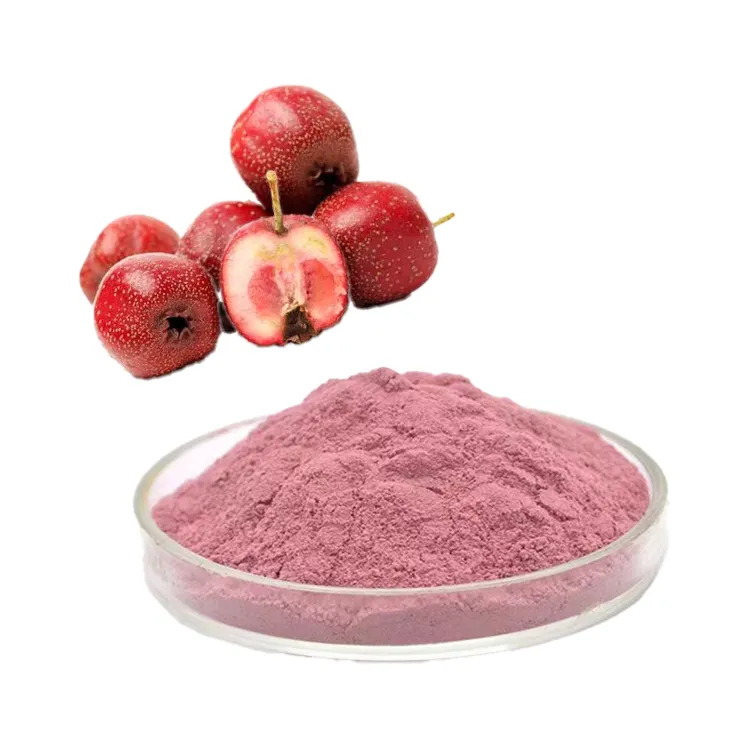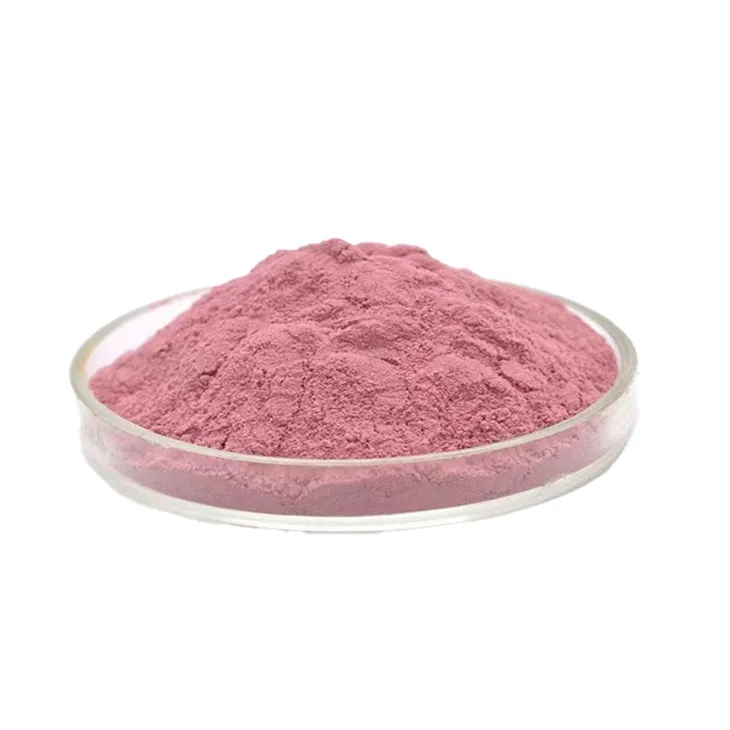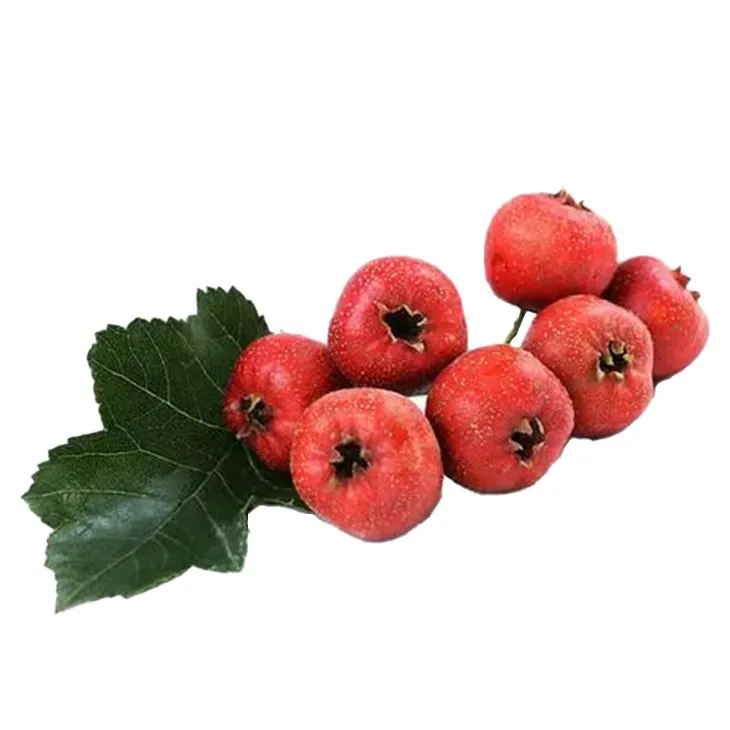- 0086-571-85302990
- sales@greenskybio.com
Hawthorn powder can reduce high blood pressure.
2024-11-12

Introduction
High blood pressure, also known as hypertension, is a common chronic disease that affects a large number of people worldwide. It is a major risk factor for various cardiovascular diseases, such as heart attacks, strokes, and heart failure. In recent years, there has been an increasing interest in natural remedies to manage high blood pressure, and Hawthorn powder has gradually emerged as a potential candidate.

Composition of Hawthorn
Hawthorn contains several bioactive compounds that may contribute to its potential blood - pressure - lowering effects. Flavonoids and triterpene acids are two important groups of substances found in hawthorn.
Flavonoids
Flavonoids are a class of polyphenolic compounds that are widely distributed in plants. In hawthorn, flavonoids play a significant role in improving blood vessel function. They can enhance the production of nitric oxide (NO) in endothelial cells. Nitric oxide is a powerful vasodilator, which means it can relax the smooth muscles in the blood vessel walls, leading to vasodilation. When blood vessels dilate, the resistance to blood flow decreases, which can potentially lower blood pressure.
Triterpene Acids
Triterpene acids in hawthorn have been shown to have beneficial effects on lipid metabolism. They can help regulate blood lipid levels. High levels of lipids in the blood, such as cholesterol and triglycerides, are often associated with hypertension. By improving blood lipid profiles, triterpene acids may indirectly contribute to the management of high blood pressure.

Mechanisms of Hawthorn powder in Reducing Blood Pressure
There are several possible mechanisms by which Hawthorn powder may reduce blood pressure.
Vasodilation
As mentioned earlier, the flavonoids in hawthorn can promote the release of nitric oxide, which causes vasodilation. This widening of the blood vessels reduces the pressure within the vessels. When the blood vessels are more relaxed, the heart does not need to work as hard to pump blood throughout the body, which can lead to a decrease in blood pressure.
Regulating the RAAS System
The renin - angiotensin - aldosterone system (RAAS) plays a crucial role in blood pressure regulation. Hawthorn powder may have an impact on this system. Some studies suggest that components in hawthorn can inhibit the activity of renin, an enzyme that is involved in the production of angiotensin II. Angiotensin II is a potent vasoconstrictor, meaning it narrows the blood vessels and increases blood pressure. By inhibiting renin, hawthorn powder may disrupt the cascade of events in the RAAS system that lead to increased blood pressure, thereby helping to lower it.
Improving Heart Function
Hawthorn powder may also improve heart function, which can be beneficial for blood pressure management. It can enhance the contractility of the heart muscle in a way that is more energy - efficient. A more efficient heart can pump blood more effectively, reducing the workload on the heart and potentially leading to a decrease in blood pressure. Additionally, hawthorn may have a positive effect on the heart's rhythm, preventing arrhythmias that can sometimes be associated with high blood pressure.

Limitations of Hawthorn Powder in Treating High Blood Pressure
While hawthorn powder shows promise in reducing blood pressure, it is important to note that it cannot replace antihypertensive drugs.
- Firstly, the evidence for its blood - pressure - lowering effects is not as conclusive as that for established antihypertensive medications. Most of the studies on hawthorn powder are relatively small - scale or pre - clinical, and more large - scale, well - designed clinical trials are needed to fully establish its efficacy.
- Secondly, the effectiveness of hawthorn powder may vary among individuals. Different people may respond differently to the bioactive compounds in hawthorn due to factors such as genetic variation, overall health status, and lifestyle.
- Finally, in cases of severe high blood pressure, relying solely on hawthorn powder could be dangerous. Antihypertensive drugs are specifically designed to rapidly and effectively control blood pressure within a safe range, especially in patients with significant hypertension or those at high risk of cardiovascular complications.

How to Use Hawthorn Powder
If someone wishes to incorporate hawthorn powder into their diet for potential blood - pressure - related benefits, there are some guidelines to follow.
- Consult a healthcare provider: Before starting to use hawthorn powder, it is essential to consult a doctor or a registered dietitian. They can assess an individual's overall health, including their blood pressure status, and determine whether hawthorn powder is a suitable addition.
- Quality and source: Ensure that the hawthorn powder is of high quality. Look for products from reliable sources, preferably those that are tested for purity and potency.
- Dosage: The appropriate dosage of hawthorn powder can vary depending on factors such as age, health condition, and the intended purpose. In general, it is recommended to start with a low dose and gradually increase it if necessary, while closely monitoring any changes in blood pressure or other symptoms.
- Combination with other treatments: Hawthorn powder should not be used as a substitute for other recommended treatments for high blood pressure, such as lifestyle modifications (e.g., a healthy diet, regular exercise) and, if prescribed, antihypertensive medications. It can be used as a complementary approach, but under the supervision of a healthcare professional.
Conclusion
In conclusion, hawthorn powder has shown potential in reducing blood pressure through various mechanisms, such as vasodilation, regulating the RAAS system, and improving heart function. However, due to its limitations, it cannot replace antihypertensive drugs. More research is needed to fully understand its effectiveness and safety in the management of high blood pressure. For individuals with high blood pressure, it is crucial to follow the advice of healthcare providers and maintain a comprehensive approach to blood pressure control, which may include lifestyle changes, appropriate medications, and, potentially, the use of complementary substances like hawthorn powder under proper supervision.
FAQ:
1. How does hawthorn powder improve blood vessel function?
Hawthorn contains flavonoids and triterpene acids. These substances can play a role in improving blood vessel function. Flavonoids have antioxidant properties, which can help protect the vascular endothelium from damage. Triterpene acids can also have positive effects on the structure and function of blood vessels, such as reducing inflammation in the vascular wall and enhancing the elasticity of blood vessels.
2. Can hawthorn powder completely replace antihypertensive drugs?
No. Although hawthorn powder may have the potential to reduce blood pressure through various mechanisms such as vasodilation, regulating the RAAS system and improving heart function, it cannot replace antihypertensive drugs. Antihypertensive drugs are specifically designed to control blood pressure based on scientific research and clinical trials. Hawthorn powder can be used as a complementary approach under the guidance of a doctor, but it is not a substitute for established medical treatment.
3. How does hawthorn powder regulate blood lipid?
The flavonoids and triterpene acids in hawthorn powder can regulate blood lipid. They can affect lipid metabolism in the body. For example, they may help reduce the levels of LDL - cholesterol (bad cholesterol) and triglycerides, while increasing the level of HDL - cholesterol (good cholesterol). This helps to improve the lipid profile in the blood and is beneficial for overall cardiovascular health.
4. What is the RAAS system and how does hawthorn powder regulate it?
The renin - angiotensin - aldosterone system (RAAS) is an important regulatory system in the body related to blood pressure control. Hawthorn powder may regulate the RAAS system by influencing the activity of enzymes and hormones within this system. For example, it may reduce the production or activity of renin or angiotensin - converting enzyme, which can then lead to a decrease in blood pressure by reducing the constriction of blood vessels and the retention of sodium and water in the body.
5. Are there any side effects of using hawthorn powder to reduce blood pressure?
Generally, when used appropriately, hawthorn powder is considered relatively safe. However, some people may experience mild side effects such as digestive discomfort, including stomachache, nausea or diarrhea. In addition, if a person is taking other medications, there may be potential interactions. Therefore, it is important to consult a doctor before using hawthorn powder, especially for those with pre - existing medical conditions or those taking other medications.
Related literature
TAGS:- ▶ Hesperidin
- ▶ Citrus Bioflavonoids
- ▶ Plant Extract
- ▶ lycopene
- ▶ Diosmin
- ▶ Grape seed extract
- ▶ Sea buckthorn Juice Powder
- ▶ Fruit Juice Powder
- ▶ Hops Extract
- ▶ Artichoke Extract
- ▶ Mushroom extract
- ▶ Astaxanthin
- ▶ Green Tea Extract
- ▶ Curcumin
- ▶ Horse Chestnut Extract
- ▶ Other Product
- ▶ Boswellia Serrata Extract
- ▶ Resveratrol
- ▶ Marigold Extract
- ▶ Grape Leaf Extract
- ▶ New Product
- ▶ Aminolevulinic acid
- ▶ Cranberry Extract
- ▶ Red Yeast Rice
- ▶ Red Wine Extract
-
Hericium erinaceus extract powder
2024-11-12
-
Coconut Water Powder
2024-11-12
-
Green Tea Extract
2024-11-12
-
Oyster Mushroom Extract Powder
2024-11-12
-
Bilberry Extract
2024-11-12
-
Chasteberry Extract
2024-11-12
-
Centella Asiatica Extract
2024-11-12
-
Feverfew Extract
2024-11-12
-
Stevia Extract
2024-11-12
-
Dan Shen Root Extract/Salvia Root Extract
2024-11-12





















